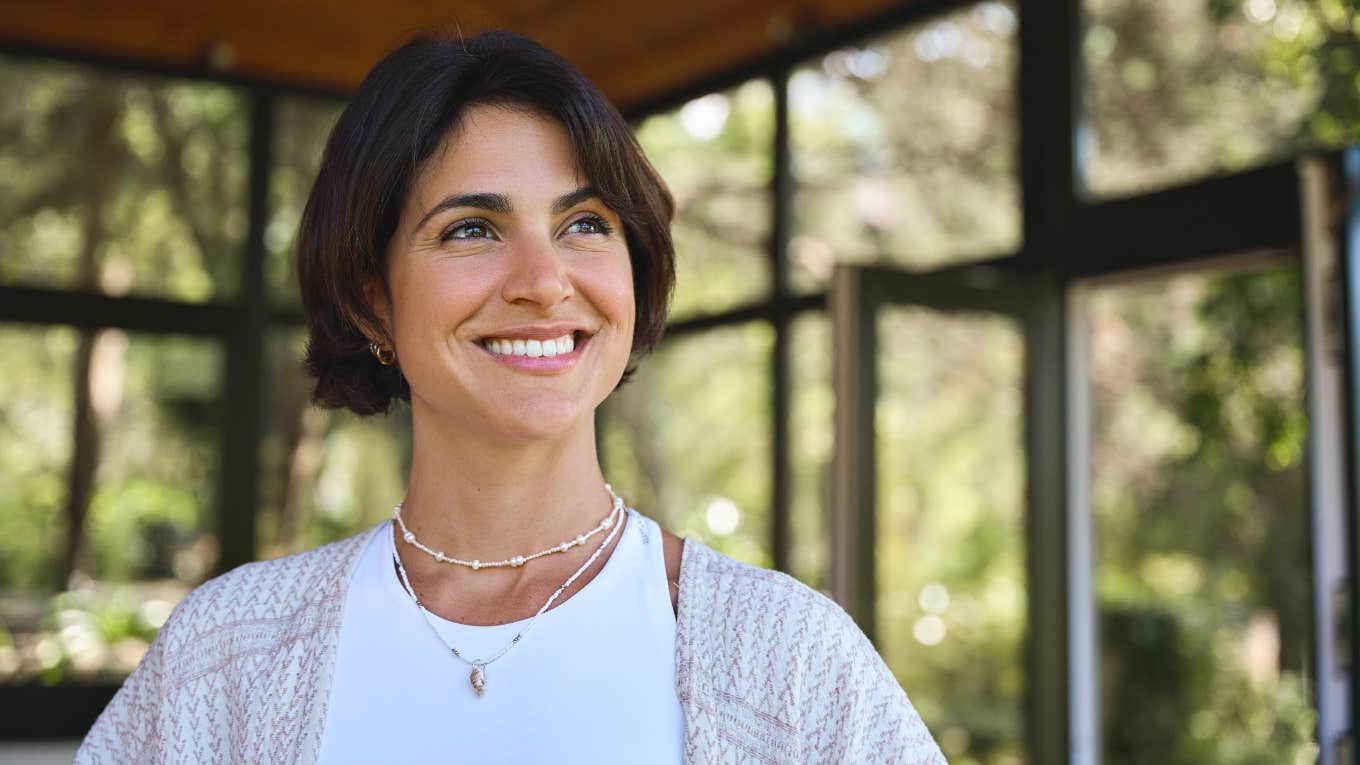Spiritual Teacher Says There Are 8 Stages Of Human Maturity — And Most People Never Make It Past Stage 3
Getting past Stage 3 is no small feat, but it's worth the hard work.
 insta_photos | Shutterstock
insta_photos | Shutterstock Most of us eventually arrive at a point in life where we ask, "Is this it?" For some of us, it's a turning point; for others, it's a sort of nagging sense that things might have been different had we made other choices earlier in our lives.
One spiritual teacher says this essential question is a chance for transformative growth that leads to a more enlightened and fulfilling life — an opportunity that all too many of us never seize
Spiritual teacher Don Oakley says there are 8 stages of human maturity but most of us only make it to stage 3.
Oakley, the managing director of the Well Being Retreat Center in Tazewell, Tennessee, is a teacher of meditation and non-dual spirituality, a philosophy that views the world and everything in it as a cohesive whole and rejects conventional dichotomies like the separation between self and other, or mind and body, for example.
A former student of Eckhart Tolle, Oakley has written several books about spirituality and spiritual awakening. In a recent video, he delved into the different stages of human maturity.
Stage 1: Non-conceptual Awareness
This is, basically, our babydom — where we're all instinct and sensory experiences but, Oakley explained, not yet able to "think or form concepts."
As an example, Oakley used the experience of needing a diaper change when we're babies. We know our dirty diaper is making us uncomfortable, "but we don't have the thought, 'when is someone going to deal with this diaper?'" We just know we don't like it, and that's it.
Stage 2: Getting Programmed
Next, we get conditioned, in ways both good and bad. We learn to walk, talk, read, write, tie our shoes, and all the other day-to-day parts of being a basic, functional human.
But there's also an underbelly to our conditioning — what Oakley calls "dysfunctional" conditioning like "being shy, feeling anxious, fearing other people," or taking on negative traits like "being prideful, having a short fuse, or harboring a sense of unworthiness."
Oakley noted that these are not imbued into us intentionally or by default, but rather we take them on from experience and social conditioning, often via others' actions.
"It just happens," he said. "There's no blame here — our parents that had a major role in our conditioning were themselves thoroughly conditioned."
Stage 3: Normal Robotic Existence
 PeopleImages.com - Yuri A | Shutterstock
PeopleImages.com - Yuri A | Shutterstock
If you're a workaday, rank-and-file type this probably sounds familiar. This, Oakley said, is the stage where we get jobs, form relationships, buy or rent houses, and "other adult things."
But there's more to this than just mere survival. "We may feel like we are making our own decisions," Oakley explained, "but those choices are heavily influenced by our childhood conditioning."
Even if our lives are fulfilling, many of these choices are motivated by what we're "supposed" to be doing. "We've grown to believe, 'Well, hey, it's just who I am,'" Oakley explained. Since most of us have all signed up for the same unspoken contract, we tend not to notice we're not really at the helm — and, crucially, never advance beyond this stage.
Stage 4: A Turning Point
Some of us, however, are jolted out of our "robotic" existence" by an unforeseen event. Oakley said a "shock is almost always required to break the trance." This can be a death, a job loss, a diagnosis, or even something like the much-vaunted "midlife crisis."
Whatever the case, it makes us "rather suddenly realize that life is finite and much of it has slipped away already," which spurs us to start questioning the lives we've built and the conditioning on which we've built them. This results in a fork in the road: In one direction, the status quo; in the other, new possibilities, which ultimately lead to the next stage of development.
Stage 5: Asking the Big Question
Once we start re-examining our lives and beliefs, Oakley claimed there ends up being a proverbial elephant in the room.
"[We] ask, 'Who am I, really?'," and the answer is often not what we expect — a realization that everything from our relationships and careers to our beliefs and memories may be related to who we are, but they don't define us entirely.
"If we ask the question with integrity," Oakley said, "we're left with the only honest answer: I don't know." As shocking and maybe even terrifying as that may be, it is where Oakley said the rubber meets the road.
Stage 6: Discovering What We've Always Been
When we start digging into this essential question, we discover the answer mainly lies in who we were before our conditioning. "It's the same awareness that we were born with," Oakley said. "We just lost track of it as we were getting shoehorned into our adult roles."
"This awareness is sometimes called true nature or spirit," he went on to explain. "It is our essential being," and discovering it, he said, is often an "enormous relief."
Stage 7: Stabilizing Our Discovery
Once we've discovered our "true nature," we have a bit of practice to do. Living this truthfully in a world that insists we conform to a set way of doing things — a way that may not align with our true self — is no small feat, after all.
What follows is a sort of practice session. "Clarity may seem to come and go," Oakley explained. "This isn't a mistake. It's actually life teaching us how to find our way home again and again."
Stage 8: Coming Into Alignment With Life
 Halfpoint | Shutterstock
Halfpoint | Shutterstock
Once we've made it through that period of practice, Oakley said our internal and external lives begin to merge.
"The sense of a personal self apart from the rest of life dissolves," he said, and with that comes acceptance of our circumstances and a more aligned path forward, based simply on "doing the next obvious thing in service to life as a whole."
When we awaken to that "alignment with how life is unfolding, moment to moment," Oakley explained, that era of discovery continues for the rest of our lives and makes all the hard work it took to reach the final stage worth every moment.
John Sundholm is a writer, editor, and video personality with 20 years of experience in media and entertainment. He covers culture, mental health, and human interest topics.

